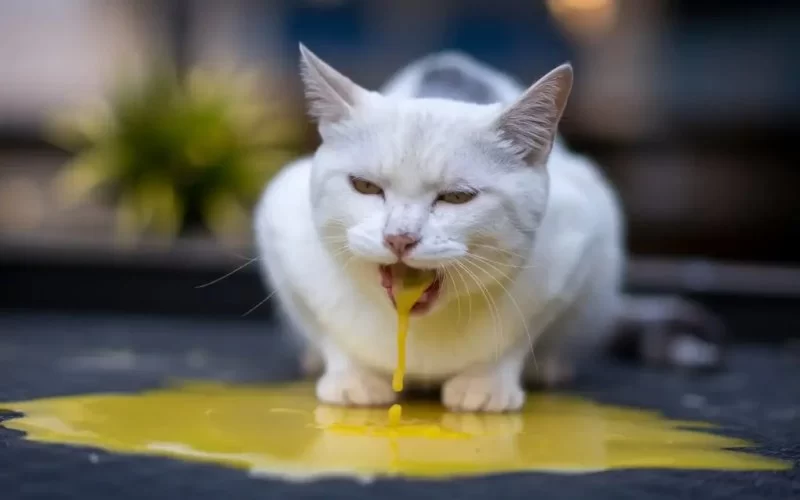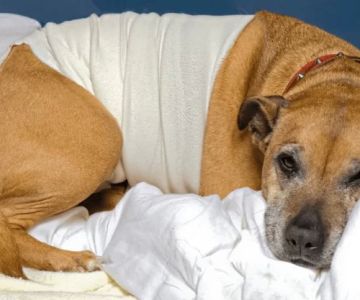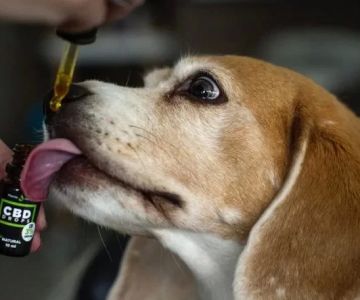- 1 - understanding-the-symptoms-of-vomiting-in-cats
- 2 - why-your-cat-might-be-vomiting-blood-or-undigested-food
- 3 - differentiating-between-acute-and-chronic-issues
- 4 - case-stories-real-experiences-from-cat-owners
- 5 - what-to-do-immediately-if-you-see-blood-in-vomit
- 6 - how-hidden-brook-veterinary-can-help-your-cat
1. Understanding the Symptoms of Vomiting in Cats
Seeing your cat vomit is never pleasant, but when it involves blood or undigested food, concern quickly escalates. These signs may indicate a more serious underlying issue than a simple upset stomach. While occasional vomiting in cats can be normal (especially with hairballs), vomiting blood or food that hasn’t been digested is often a signal that something is wrong.
It’s crucial to observe what the vomit contains, how frequently it happens, and whether your cat shows other symptoms like lethargy, appetite loss, drooling, or weight change. These clues help determine whether you're dealing with a short-term issue or a symptom of a chronic or critical condition.
2. Why Your Cat Might Be Vomiting Blood or Undigested Food
There are several potential causes of cat vomiting blood or undigested food, ranging from minor to severe. Understanding these can help you respond more quickly and appropriately:
- Gastrointestinal ulcers: Stomach ulcers may cause bleeding, especially if aggravated by medication or underlying disease.
- Foreign object ingestion: A piece of string or small toy can irritate or tear the digestive tract, leading to vomiting and blood.
- Inflammatory bowel disease (IBD): Chronic inflammation can interfere with digestion and cause bloody vomit or partially digested food to reappear.
- Poisoning or toxins: Ingesting toxic plants, household cleaners, or human medications can result in stomach lining damage and vomiting blood.
- Gastric tumors: Though rare, cancerous growths can cause vomiting episodes with visible blood or persistent food regurgitation.
Every case is different, and only a veterinarian can make an accurate diagnosis with appropriate tests such as bloodwork, X-rays, or ultrasounds.
3. Differentiating Between Acute and Chronic Issues
Understanding the pattern of vomiting can help determine whether it’s an acute emergency or a chronic condition needing long-term care.
If your cat suddenly begins vomiting blood or food and seems distressed—panting, crouching, or yowling—it may be an emergency. Acute trauma, toxin exposure, or gastrointestinal blockage are all urgent conditions.
On the other hand, chronic vomiting might present as occasional episodes with little blood and partially digested food. These cases may be linked to allergies, slow-digesting meals, or gastrointestinal sensitivity. While not emergencies, they still require veterinary attention to prevent escalation.
4. Case Stories: Real Experiences from Cat Owners
Milo, a 6-year-old tabby, started vomiting his breakfast every few days—mostly undigested kibble. His owner thought he was just eating too fast, but when streaks of blood appeared, they brought him to Hidden Brook Veterinary. An exam and endoscopy revealed a foreign object lodged in his stomach lining—a bottle cap he had likely swallowed weeks earlier. After removal, Milo made a full recovery.
Another case involved a Persian cat named Cleo who began vomiting after every meal. There was no visible blood, but when it eventually showed up in two episodes, her owner knew it was time to act. Testing revealed inflammatory bowel disease, which is now managed through a hypoallergenic diet and medication.
Stories like these show how early action can turn a frightening symptom into a manageable condition—or even a full recovery.
5. What to Do Immediately If You See Blood in Vomit
Finding blood in your cat’s vomit can be alarming, but staying calm and prepared makes a difference. Here’s what to do:
- Take a photo or sample: This helps your vet evaluate the color and volume of the blood.
- Note the time, frequency, and context: Was it after eating? Did your cat seem in distress? All of this matters.
- Remove access to food: Temporarily withholding food can prevent further vomiting—but do not restrict water unless advised.
- Contact your veterinarian immediately: Any blood in vomit—especially if recurrent—is not normal and should be investigated promptly.
Waiting could mean missing the narrow window where a problem is easily treatable.
6. How Hidden Brook Veterinary Can Help Your Cat
At Hidden Brook Veterinary, we approach cases of vomiting with urgency, expertise, and compassion. Whether your cat is vomiting blood, undigested food, or both, our diagnostic tools help uncover the cause quickly and accurately. From gastrointestinal imaging to specialized lab testing, we leave no symptom unexplored.
Our team tailors treatment based on your cat’s specific condition—whether it's emergency surgery for a blockage, dietary management for IBD, or supportive care for ulcers. We also guide you in monitoring your pet at home and adjusting care as needed.
If you’ve noticed your cat vomiting blood or undigested food, don’t wait. The sooner we see them, the better the chance of a safe and successful recovery.











